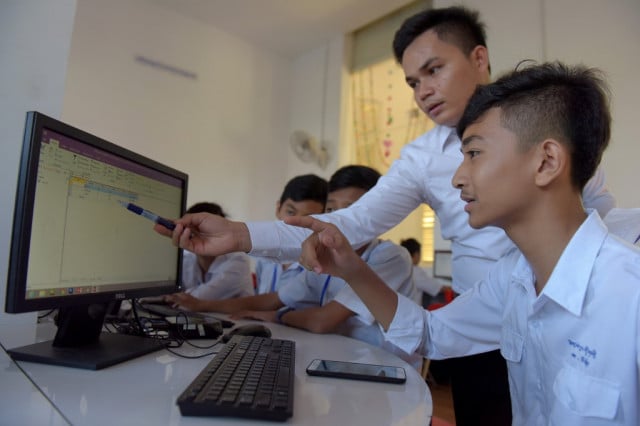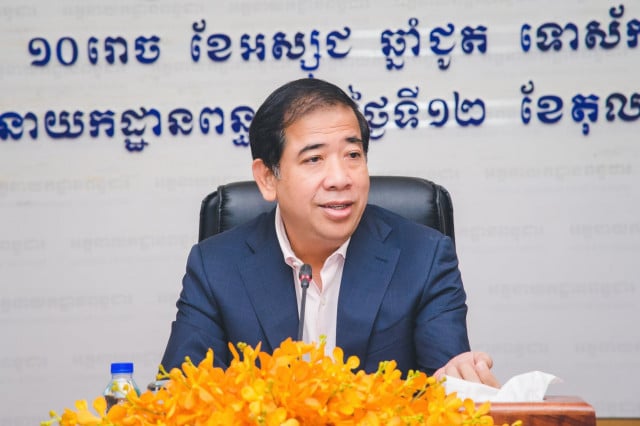Op-Ed: Cambodian Education’s E-Readiness amidst Covid19

- Chan Raksmey
- June 6, 2020 10:36 AM
E-learning or online learning has taken roots in Cambodia for quite a while and is not a very new concept for the public. The government and its stakeholders have promoted digital literacy for years and encouraged activities related to technological development-4IR [Fourth Industrial Revolution] such as annual digital tech expo, robotic competition and other digital start-ups showcasing the move of the kingdom on the right digital trend.
No sooner has the digital shoot showed its bright sight that Cambodia is severely hit by the outbreak of the Novel Coronavirus (Covid-19). Public and private schools are asked to halt their operation immediately and move all learning platforms online.
The MoEYS [Ministry of Education, Youth and Sport] has announced the e-learning platforms for students at public schools by using You Tube channel, the ministry’s website and social media as the main domains. Lately, another television channel broadcasting solely the lessons for K1-12 is available. Private schools are no different, adopting any technologies they can afford to survive their educational operation. These mechanisms, whether effective or not, have been done in no time corresponding to the needs of the learners and in accordance with the prevention method against the coronavirus.
The immediate countermeasures made by the MoEYS remain a big doubt for the public questioning to what extent it corresponds to the needs of students. It is understandable that the income of Cambodian people is in a big deviation. The majority settles a bit above the poverty line and is susceptible to falling into poverty again. There is a limited number of people, particularly students, who can afford the use of smart devices to access their online classroom or watch lessons online. Hence, the current measure of the ministry would not bring education for all but discrepancy of education instead.
While provincial students are impeded by the limited internet access, students living in city who could follow such measures conducted by the ministry are still obstructed by the inconveniences of online class posed by the instability of network connection, high-cost of internet services and low digital competencies.
Many students and parents still hold pessimistic perception towards online classrooms compared to a physical classroom, believing that the latter offers better quality and interaction. This mindset has shown their un-readiness towards digitalization. Though it is true to some extent, acquiring knowledge needs more than class attendance. Either online or offline learning, one needs to be equipped with learning autonomy, responsibility, time management skills to truly absorb the knowledge.
The responses to the question of the readiness of the individual and institutions for e-learning are known to be limited, yet responsive to the lockdown situation, and it does require incremental improvement.
To maximize the benefit from e-learning with the limited digital capacity, all stakeholders and especially students and parents are encouraged to be concessive and understating towards the school and the ministry regarding these prompt responses. Learners have to enhance their learning autonomy; teachers have to upgrade their digital competency; the internet network should be expanded and strengthen its services; educational institutions have to continuously assist their remote students and staff through capacity development and improve the quality of digital infrastructure; the ministry is indeed required to support its subordinate institutions and prepare in advance for such unexpected changes that could happen again in the unseen future.
Chan Raksmey obtained his bachelor degrees in Education and International Studies from the Royal University of Phnom Penh in 2018. Currently, he is a research assistant at vice-rector's secretariat, the RUPP.















